WATCHING the arrival of foreign delegations at FNB Stadium to attend Nelson Mandela’s memorial service, I could not help noting how one of the 20th century’s revolutionary leaders has been appropriated by the establishment. Former US president Jimmy Carter, now counted among the world’s elders, ambled in with shoulders now slightly stooped by age. Three other US presidents, two Democrats, including the incumbent, plus a Republican were also present. The incumbent British prime minister and his predecessors, a former president of France, the presidents of Brazil and Cuba all arrived to pay their last respects to a deceased liberation fighter born in a tiny village in the Eastern Cape.
The pushy young man who had arrived in the humming urban environment of Johannesburg from the Transkei, fleeing an arranged marriage, had indeed arrived!
The passing of no other African former head of state has been marked by flying the US flag at half-mast. It seems that, except for the sheriff of some small town in South Carolina, President Barack Obama’s instruction was universally observed. No African politician’s passing occasioned a special sitting of the British House of Commons.
The funerals of few heads of state attracted so many foreign dignitaries. It could easily have been mistaken for a mini-summit.
South Africa will not experience such a proud moment for a lifetime or two! Not only does this moment demonstrate the tremendous goodwill South Africa enjoys, thanks to Mandela, it is also a symbolic expression of the world community’s unmistakable endorsement of the achievements of South Africa’s democracy.
The procession brought home the ironies of Mandela’s life. In the past, collecting signatures for the hundreds of "Free Mandela" petitions circulating in the capitals of the West one was constantly reminded he was an outcast. Mandela and the South African people’s struggle for freedom and democracy were causes championed by the left. In one or two countries, parties and nongovernmental organisations of the centre could be counted among anti-apartheid forces, but in the main, our supporters were social democratic and other socialist parties, the trade unions and a handful of very conscientious clerics. During the 1970s, the ecumenical community also found ways of relating to the struggle.
Mandela represented the millions enslaved by the shackles of racism. Compelling the Pretoria regime to release him would constitute symbolic recognition of the justice of his cause and create opportunities for a resolution.
One can already recognise the mystification of this historic figure. His role as a man of action and one of the initiators of the armed struggle is being suppressed. When his statement from the dock is quoted, they underscore his readiness to make the ultimate sacrifice, understating his willingness to employ force. Everyone reminds us of the ideas and ideals Madiba taught. Far too few say that he also taught us that it was proper, when necessary, to fight to realise them.
The international movement demanding freedom for Mandela was one of ordinary citizens. Its charm was that it was a loose coalition that could appeal to every shade of political opinion, this side of the ultraright. But political parties of the centre and right and the governments they constituted at various times during the 28 years of Mandela’s imprisonment responded negatively to our campaign. Conservative politicians in the UK, France, Germany and the US gave apartheid leaders Hendrik Verwoerd, BJ Vorster and PW Botha support. Their presence at Madiba’s funeral means that we have won the argument. We have convinced ice-blue Tories that taking up arms in pursuance of freedom is not only morally right, but an obligation when there are no other options.
It took years of hard slog to bring greater awareness of South Africa’s struggle to people in countries that faced their own problems. Thousands of unknown activists contributed to the impressive farewell by the world on Tuesday. It was that international grassroots movement, capable of bridging the political divide between left and right, that made Mandela the 20th century’s best-known political prisoner. The movement was fortunate to crest at a moment when there was a highly socially conscious artistic community. But there were many demands on such people from a host of worthy causes. Many willingly lent their names and talent to demand his release.
The words of Raul Castro: "Eternal glory to Nelson Mandela, the heroic revolutionary!" captured the day.
Madiba, with his legendary modesty, would probably have rejected the laurels of eternal glory. Glory does indeed attach to Mandela’s name and his long walk to freedom. And there can be no doubt that he earned it. South Africa basks in the hard-earned glory of an extraordinary life spent in the frontline trenches of the freedom struggle. Mandela has truly done his people, his country and our continent proud.
It is a rare privilege to work with and serve under the leadership of a world historical figure. I shall remain eternally grateful that I was afforded that opportunity.
Lala ngoxolo Ngub’engcuka!
• Jordan is a former arts and culture minister.
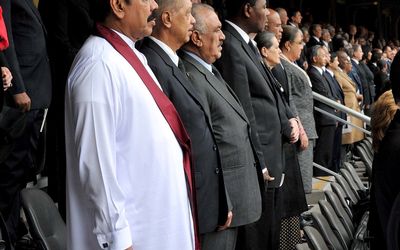
World dignitaries rise in tribute to former president Nelson Mandela at the official memorial service at FNB Stadium in Johannesburg on Tuesday. Picture: GCIS
WATCHING the arrival of foreign delegations at FNB Stadium to attend Nelson Mandela’s memorial service, I could not help noting how one of the 20th century’s revolutionary leaders has been appropriated by the establishment. Former US president Jimmy Carter, now counted among the world’s elders, ambled in with shoulders now slightly stooped by age. Three other US presidents, two Democrats, including the incumbent, plus a Republican were also present. The incumbent British prime minister and his predecessors, a former president of France, the presidents of Brazil and Cuba all arrived to pay their last respects to a deceased liberation fighter born in a tiny village in the Eastern Cape.
The pushy young man who had arrived in the humming urban environment of Johannesburg from the Transkei, fleeing an arranged marriage, had indeed arrived!
The passing of no other African former head of state has been marked by flying the US flag at half-mast. It seems that, except for the sheriff of some small town in South Carolina, President Barack Obama’s instruction was universally observed. No African politician’s passing occasioned a special sitting of the British House of Commons.
The funerals of few heads of state attracted so many foreign dignitaries. It could easily have been mistaken for a mini-summit.
South Africa will not experience such a proud moment for a lifetime or two! Not only does this moment demonstrate the tremendous goodwill South Africa enjoys, thanks to Mandela, it is also a symbolic expression of the world community’s unmistakable endorsement of the achievements of South Africa’s democracy.
The procession brought home the ironies of Mandela’s life. In the past, collecting signatures for the hundreds of "Free Mandela" petitions circulating in the capitals of the West one was constantly reminded he was an outcast. Mandela and the South African people’s struggle for freedom and democracy were causes championed by the left. In one or two countries, parties and nongovernmental organisations of the centre could be counted among anti-apartheid forces, but in the main, our supporters were social democratic and other socialist parties, the trade unions and a handful of very conscientious clerics. During the 1970s, the ecumenical community also found ways of relating to the struggle.
Mandela represented the millions enslaved by the shackles of racism. Compelling the Pretoria regime to release him would constitute symbolic recognition of the justice of his cause and create opportunities for a resolution.
One can already recognise the mystification of this historic figure. His role as a man of action and one of the initiators of the armed struggle is being suppressed. When his statement from the dock is quoted, they underscore his readiness to make the ultimate sacrifice, understating his willingness to employ force. Everyone reminds us of the ideas and ideals Madiba taught. Far too few say that he also taught us that it was proper, when necessary, to fight to realise them.
The international movement demanding freedom for Mandela was one of ordinary citizens. Its charm was that it was a loose coalition that could appeal to every shade of political opinion, this side of the ultraright. But political parties of the centre and right and the governments they constituted at various times during the 28 years of Mandela’s imprisonment responded negatively to our campaign. Conservative politicians in the UK, France, Germany and the US gave apartheid leaders Hendrik Verwoerd, BJ Vorster and PW Botha support. Their presence at Madiba’s funeral means that we have won the argument. We have convinced ice-blue Tories that taking up arms in pursuance of freedom is not only morally right, but an obligation when there are no other options.
It took years of hard slog to bring greater awareness of South Africa’s struggle to people in countries that faced their own problems. Thousands of unknown activists contributed to the impressive farewell by the world on Tuesday. It was that international grassroots movement, capable of bridging the political divide between left and right, that made Mandela the 20th century’s best-known political prisoner. The movement was fortunate to crest at a moment when there was a highly socially conscious artistic community. But there were many demands on such people from a host of worthy causes. Many willingly lent their names and talent to demand his release.
The words of Raul Castro: "Eternal glory to Nelson Mandela, the heroic revolutionary!" captured the day.
Madiba, with his legendary modesty, would probably have rejected the laurels of eternal glory. Glory does indeed attach to Mandela’s name and his long walk to freedom. And there can be no doubt that he earned it. South Africa basks in the hard-earned glory of an extraordinary life spent in the frontline trenches of the freedom struggle. Mandela has truly done his people, his country and our continent proud.
It is a rare privilege to work with and serve under the leadership of a world historical figure. I shall remain eternally grateful that I was afforded that opportunity.
Lala ngoxolo Ngub’engcuka!
• Jordan is a former arts and culture minister.


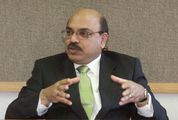

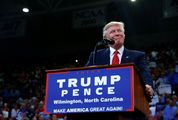
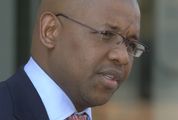




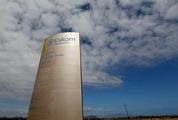

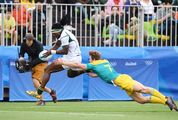

 News and views on the death, and life, of former president Nelson Mandela, with tributes and photographs
News and views on the death, and life, of former president Nelson Mandela, with tributes and photographs







